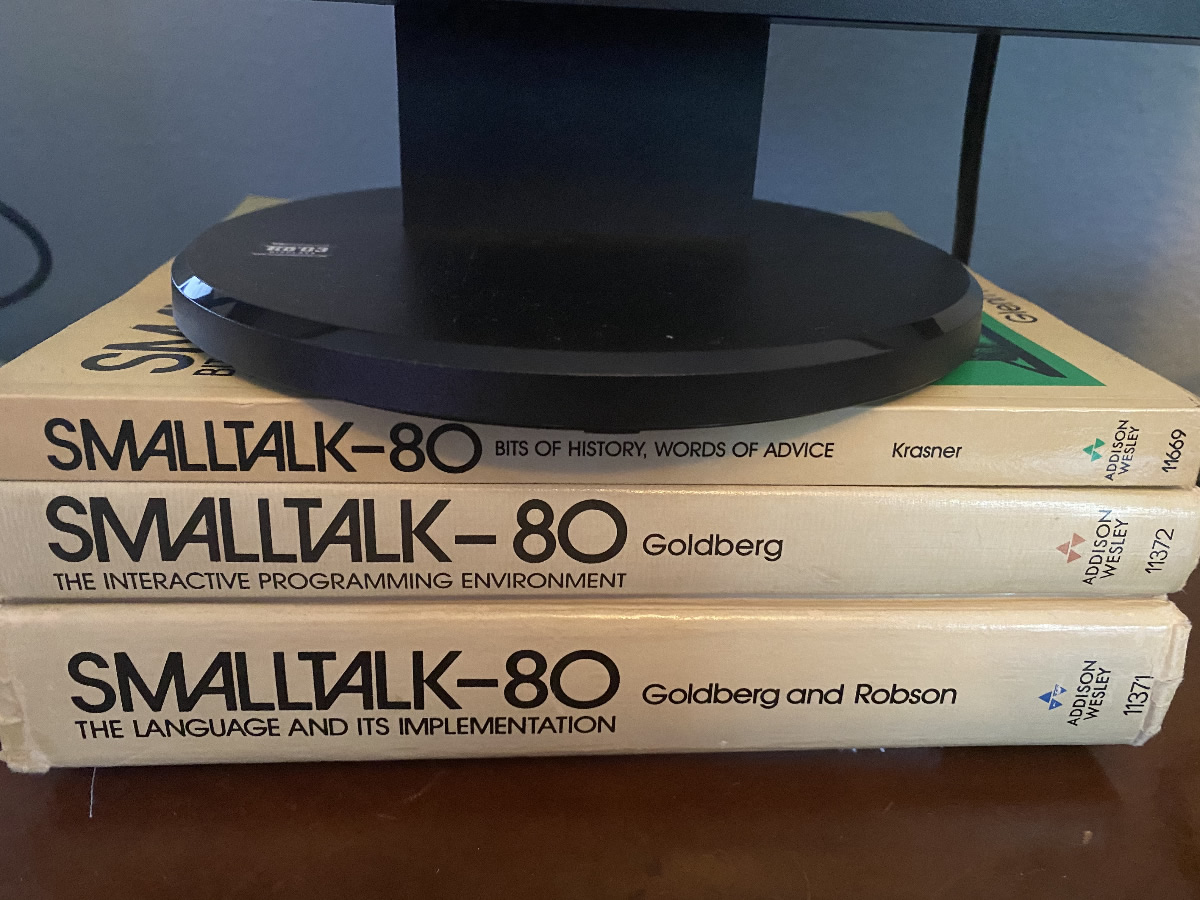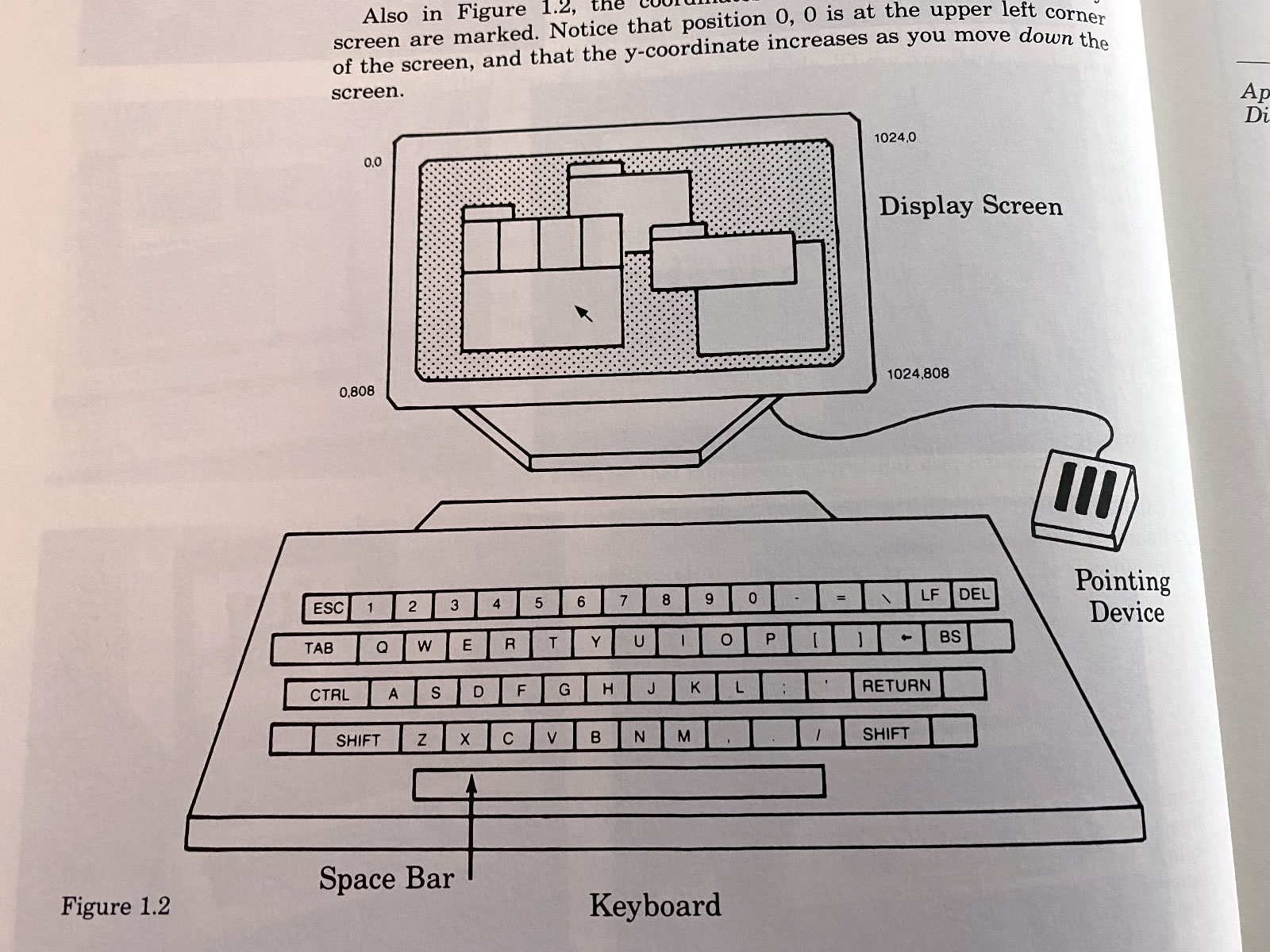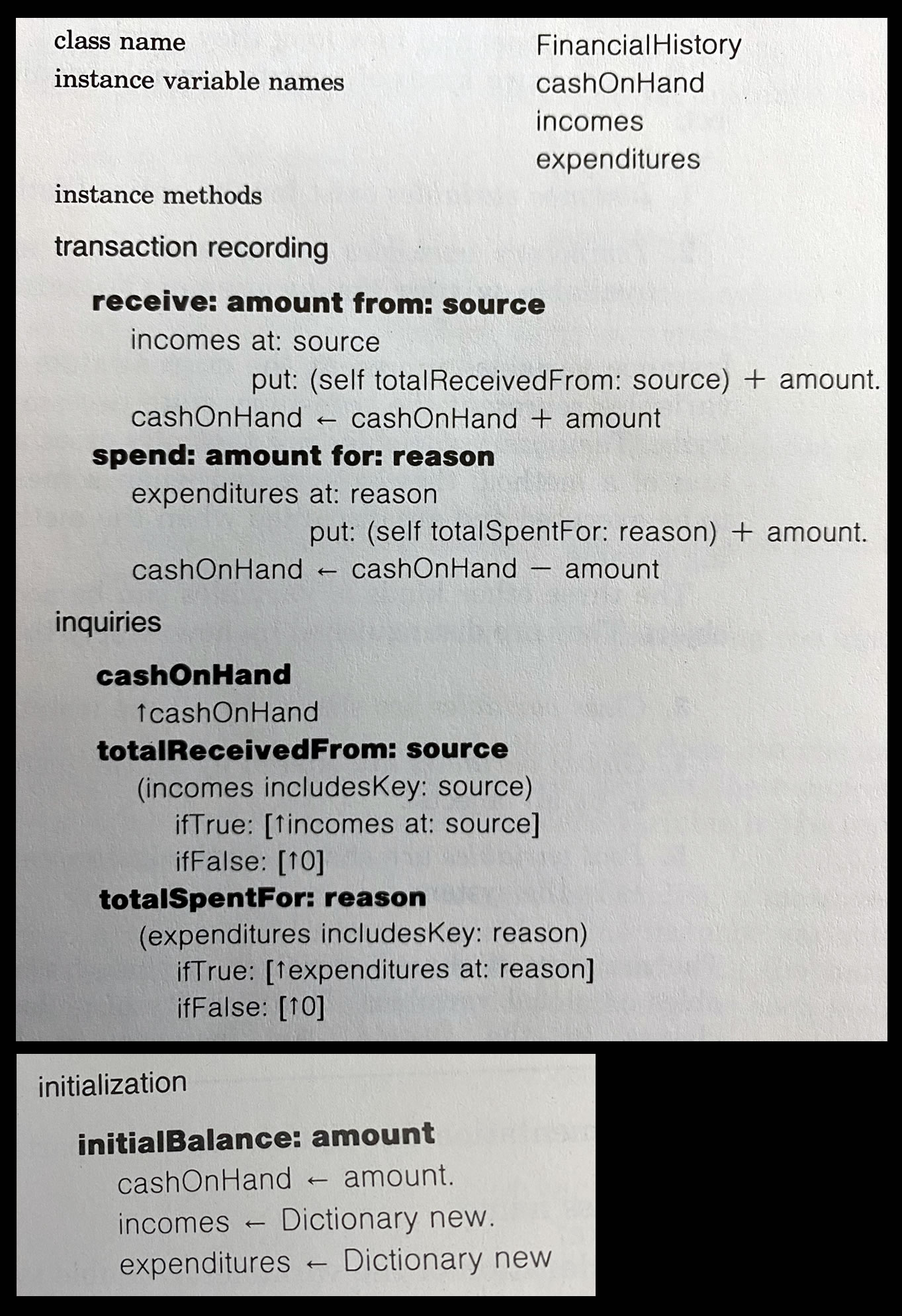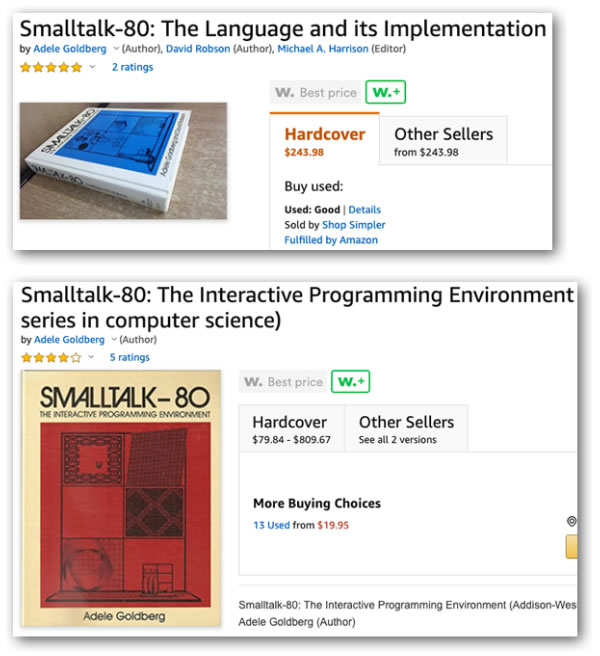A couple of readers noticed my makeshift monitor stand pictured in the article Building a lean and mean (and frugal!) Python development machine with Peppermint OS:
Yup, it’s the holy trinity of books for Smalltalk-80, the definitive release of original recipe Smalltalk. You probably haven’t used Smalltalk, but you probably use a programming language influenced by it: Dart, Go, Java, Kotlin, Objective-C, PHP, Python, Ruby, Swift, and Scala, to name just a few.
They were a lucky find: they were in a banker’s box in a trash pile on the east side of downtown Toronto, sometime in late 1998. It’s probably my best dumpster-dive find, beating out even that still-functional cable modem or e-Machines starter Pentium machine that I would find a few months later. (Boom times make for great dumpster diving.)
The books are historically interesting. They’re written for readers who would spent all their computing time in the command line, and probably had never seen a GUI before, and they most definitely had never used an IDE. That’s why one of the books is devoted to Smalltalk’s interactive environment, and why one of the first illustrations in that book is this one:

Here’s a sample from the biggest of the books: Smalltalk-80: The Language and its Implementation. It’s the definition of a class named FinancialHistory:

To a present-day programmer, the syntax may seem a little weird (it’ll be a little less weird to Objective-C and Swift programmers; now you know where that method-calling syntax comes from!), but they’d still find it familiar. To a programmer in 1984, the year the book was published, who probably subsisted on a steady diet of structured programming, this must’ve been positively mindblowing.
For the curious, here’s how you’d create an instance of FinancialHistory named HouseholdFinances with an initial balance of $350:
HouseholdFinances ← FinancialHistory new initialBalance: 350
Once created, we’d record household spending like so:
HouseholdFinances spend: 32.50 for: 'utilities' HouseholdFinances spend: cost + tax for: 'food' HouseholdFinances spend: 100 for: 'reasons'
(I just felt a disturbance in the Force, as if millions of Objective-C and Swift programmers cried out, saying “So it’s Smalltalk’s fault!”)
The smallest of the books, Smalltalk-80: Bits of History, Words of Advice, gets deep into the implementation details of Smalltalk-80. And I do mean deep: there’s a whole chapter devoted to an implementation of a Smalltalk garbage collector.
I’ll eventually return these books to their proper place on the bookshelf and replace them with a proper monitor stand, but in the meantime, they’re doing a pretty good job as the basis for my monitor, just as their content did a pretty good job as the basis for the programming languages I use.
I do try to take care of these books, as their scarcity has made them a little more expensive than your standard textbook:

One reply on “My Smalltalk-80 literature and monitor stand”
[…] don’t just use books as monitor stands for my Linux setup, but for my macOS setup as well — and it’s an equally geeky set of […]